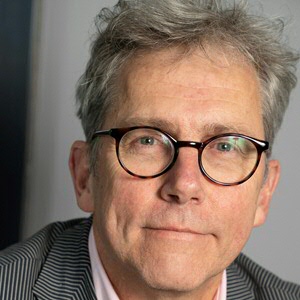Erik Dietzenbacher appointed Officer of the Order of Orange-Nassau

On 26 April, Erik Dietzenbacher (Brunssum, 1958) was appointed Officer of the Order of Orange-Nassau. He is Professor of Interindustry Economics at the Faculty of Economics and Business at the University of Groningen and a scientist of huge international renown. He specializes in the study of economic relationships between economic sectors, or input-output analysis. He mainly studies how changes in the economy affect economic outcomes, for example what happens to employment as investments are made in a certain sector. These studies are undertaken on both a local and global level.
Above-average number of publications and citations
In his field, Dietzenbacher has more than 90 articles in international journals and nine books to his name. Furthermore, the number of citations from this unprecedented high number of scientific publications is above average, with 40 of his contributions cited 40 times or more. That is an exceptionally high number in academia. His work has put the Netherlands on the international map in this field.
Scientist of international renown
Between 2009 and 2012, Dietzenbacher was the project manager of the international World Input-Output Database project (WIOD), which was funded by the European Union, and in which 11 European institutions took part. The aim of this project was to draw up a series of annual input-output tables for the entire world. This resulted in a database that provided insight into the importance and scale of value chains in international trade. Due in part to Dietzenbacher’s considerable efforts, this project caused a revolution in thought about this interesting theme. For example, this study showed that moving the production of companies such as Apple and Philips to low-income countries adds relatively little economic value. In fact, most value was found to be created through innovation and marketing by the headquarters in Western countries. The impact of this database is huge and extends beyond academia. International organizations such as the European Union, the World Bank and the International Monetary Fund (IMF) have based many findings in their reports on the WIOD. These reports encompass issues such as the effect of economic development, for example European consumption patterns; and the global environment, such as CO2 emissions in China. The design of the WIOD has been reproduced worldwide.
Major role in the academic professional association
His status as a top researcher was further elevated by the important position that Dietzenbacher filled over the years for the International Input-Output Association (IIOA), the professional academic association in his field, where he was managing director and editor of Economic Systems Research, IIOA’s periodical, from 1994 to 2009. After stepping aside from this role in 2009, he continued to be a member of the editorial team. He was also the president of the IIOA for two terms between 2013 and 2018, a position of great international esteem. In 2014, he was appointed Fellow of the IIOA and, in 2019, he received the Jiri Skokla Medal for his significant contribution to the development of his field and the running of the association. This distinction has only been awarded twice. Finally, he was a member of the editorial teams of the scientific publications of the Journal of Regional Science and the Journal of Economic Structures for many years. Throughout his career, he contributed in an extraordinary manner to turning this niche topic within the economic sciences into a mainstream subject.
International activities
On an international level, Dietzenbacher shows great commitment to doing much valuable work. For example, he is an Affiliate Research Professor at the Regional Economics Applications Laboratory at the University of Illinois and a visiting professor at the School of Management at the Chinese Academy of Sciences in Beijing. In the latter position, he played a major role in the development of the Double Degree PhD Programme that the Faculty of Economics and Business has set up with this institution. Due to his commitment, time, effort and tact, PhD students are able to spend the four years of their PhD programme partly in the Netherlands and partly abroad. He was subsequently involved in the selection of a large number of Chinese PhD students and was the PhD supervisor for several of these students.
Inspiring instructor
Within the Faculty of Economics and Business, Dietzenbacher was both the president and the research director of the Department of Global Economics and Management for several years and held these positions with great satisfaction, humour and wisdom. He has also been very active when it comes to teaching. For example, he was closely involved in the development of the faculty-wide Research Master’s programme and developed course units that allowed researchers to become skilled in drawing up research proposals and scientific methodology – crucial elements in the training of these young researchers. As an instructor, he is considered a source of inspiration by students at all stages of their education: from first-year undergraduate to PhD students.
| Last modified: | 22 April 2021 11.58 a.m. |
More news
-
01 April 2025
UGBS Executive MBA best-rated MBA | Dutch Master's Guide 2025
According to the independent Keuzegids Masters 2025, the Executive MBA of the University of Groningen Business School is the best rated MBA in the Netherlands (both part-time and full-time programmes).
-
01 April 2025
Executive Master of M&A and Valuation accredited as joint degree with Vrije Universiteit Amsterdam
Starting 1 September, participants enrolled in the programme will receive a master's degree from both the University of Groningen and Vrije Universiteit Amsterdam upon successful completion.
-
24 March 2025
UG 28th in World's Most International Universities 2025 rankings
The University of Groningen has been ranked 28th in the World's Most International Universities 2025 by Times Higher Education. With this, the UG leaves behind institutions such as MIT and Harvard. The 28th place marks an increase of five places: in...
